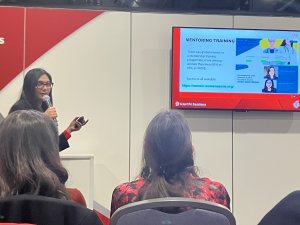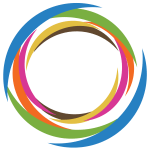Mentorship is frequently referenced as an important growth opportunity in a physician’s career. But what makes a successful mentorship relationship? If you’ve never been involved in formal mentorship, what does it look like, how do you start, and how do you ensure success? 2021 Escalator Award winners Dr. Shrilla Banerjee and Dr. Aaysha Cader set about exploring these questions with the goal of creating standard support and guidance for physicians at all career stages.
Both physicians had been mentored throughout their careers. Early on, Dr. Banerjee was mentored by several strong women, but none had children, and she longed for support and guidance around how to navigate child rearing during her career. She was discouraged when respected male colleagues told her not to “remind them” that she was a woman by getting pregnant or that cardiology “wasn’t ready” for women. She became determined to forge a successful career in cardiology despite this and to support early career women to pursue all their dreams. Dr Cader had been mentored by male professors at her home institution in Bangladesh but had not had formal mentorship from a female interventionalist before.
“During my interview for the Escalator Awards, Professor Marie-Claude Morice asked me how I would pay it forward if I were to win. This mentorship project felt like the perfect research-based way to build something meaningful.”
Dr. Cader
Getting started
Drs Banerjee and Cader developed a three-pronged approach to achieve their objective of creating a sustainable global mentorship guide:
1) Toolkit development
The goal of the toolkit was to create a simple guide that would effectively train any and all mentorship pairs. Their first call was to a friend of Dr. Banerjee who had developed a global mentorship project while employed by KPMG, one of the ‘Big Four’ global accounting firms. Women in business face similar challenges to those in medicine, with fewer women progressing up the leadership pyramid. Along with her friend and her business partner, the four devised a toolkit to provide clear guidance for both mentors and mentees that could be applicable across all countries and cultures worldwide and would be valuable to the growth of both participants in the mentoring relationship.
2) Pilot mentorship program
Once the toolkit was complete, they began a pilot mentoring program to test its applicability in real-world mentorship settings. They created eight mentorship pairings in the UK and eight in Bangladesh which provided helpful cross-cultural feedback to fine-tune the toolkit. They found that people would often over-complicate their thinking around mentorship, believing it requires formal training and rigid structure. They also discovered that while mentees entered their pairings with a firm understanding of what they hoped to gain, many of the mentors did not. Based on the pilot results, the toolkit was modified to ensure it reflected these new insights and created more clarity for mentors specifically.
“We had a few of the mentors asking us how they would benefit. And we realised that many of them hadn’t been mentored themselves, so they didn’t understand what it would entail. By definition, a mentor is altruistic; you are giving, you might get something back, but ultimately this is your opportunity to give to somebody else and build the next generation.”
Dr Banerjee
3) Review the global state of mentorship
The final part of their strategy was to gain an understanding of the global trends of mentorship for through a global survey, addressed to both women and men. The survey received 1210 responses, with a 50.66% response rate from females, 49.33% response rate from males and 0.33% from non-binary. When data collection was complete, Drs Banerjee and Cader began their analysis, gaining insights that mirrored those of the pilot mentorship pairings.
Many respondents thought that a lack of time, a lack of training/ understanding of the concept of mentorship, and poor communication were the foremost barriers to effective mentorship. The survey also revealed insights on different mentorship needs across different continents and subspecialties. These findings made it abundantly clear that a Mentorship Toolkit was very much needed and wanted by the global cardiology community.
Outcomes
Drs. Banerjee and Cader presented their Escalator Award project as an abstract during the 2023 AHA Scientific Sessions, for which they were awarded a Paul Dudley White International Scholar Award. They also announced the official launch of the Mentorship Toolkit developed in partnership with Women as One. The toolkit is now accessible for free at mentor.womenasone.org and is available for all to use.

“Our hope is that the toolkit will help to provide more accessible mentorship. That there will be more women empowered to continue careers in cardiology, so that we will develop a more diverse workforce. And ultimately, that will generate better patient care.”
Dr. Banerjee
2021 Escalator Award winners Drs. Banerjee and Cader envisioned and brought to life a resource that has the potential to cause long-lasting positive change for all cardiology trainees. The pair have also published numerous papers related to implicit biases in healthcare and sex differences in cardiovascular disease. The 2024 Escalator Awards will open for applications in January 2024, you can learn more here. Women physicians – join the Talent Directory so you can apply for the awards as soon as applications open.
Aaysha Cader MBBS, MD, MRCP, MSc, is a cardiology registrar based at Kettering General Hospital, United Kingdom. She was formerly Assistant Professor of Cardiology at the Ibrahim Cardiac Hospital & Research Institute, Dhaka, Bangladesh. Shrilla Banerjee, MBChB, MD, FRCP, FESC is a Consultant Cardiologist, at the East Surrey Hospital, Surrey and Sussex Healthcare NHS Trust, United Kingdom.
The Women as One Escalator Awards are an annual recognition of highly qualified women physicians taking action to improve patient care in their specialty. The Escalator Awards aim to fortify the pipeline of women leaders in medicine through targeted funding, mentorship, and networking opportunities. By providing support and visibility to talented women physicians, we hope to develop a more equitable healthcare workforce. To learn more, visit www.womenasone.org/escalator-awards.
Story | Article | Escalator Awards, Mentorship, Mentorship toolkit

